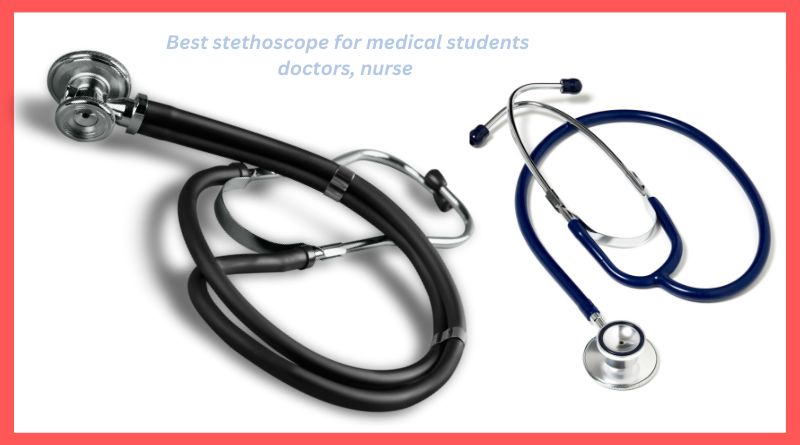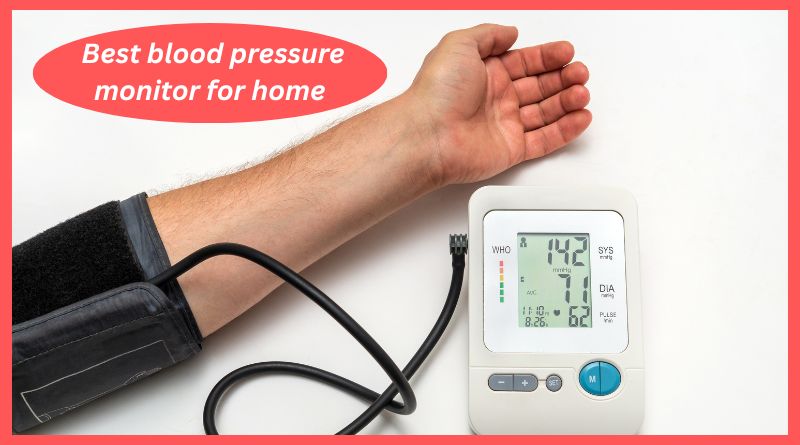Topics in obstetrics and gynecology advice such as diseases, pregnancy, menopause, surgery, family planning, etc.
What is Gynecology?
A field of medicine that specializes in the care of women from adolescence to old age and the diagnosis and treatment of diseases of the female reproductive organs. She also specializes in other women’s health problems, such as menopause, hormonal problems, contraception (birth control), diagnosis and treatment of genital bleeding, etc.
Recommended obstetrics and gynecology nursing books on Amazon
Topics in obstetrics and gynecology of menopause:
It is the cessation of permanent menstruation. Symptoms and signs of menopause include: Your face, chest, and other areas may feel very hot. They usually go away in a few minutes at night, which can cause you to wake up at night wet from sweating vaginal dryness, itching, irritation, or discharge. We have a specialized consultation in your treatment to improve your symptoms.
Endometriosis: it is a condition in which tissue of endometrial origin (such as that lining the uterus) is present in other parts of the body. Endometriosis is the leading cause of pelvic pain and pain during menstruation and sexual intercourse. until there is a better understanding of endometriosis, only the symptoms can be treated, not the underlying causes.
Management options include medications, surgery, and lifestyle changes.
Pelvic floor: The pelvic floor is a set of muscles and ligaments found at the base of the pelvis. Its best-known function is to retain the viscera of the abdomen and pelvis, that is, to support the digestive, urinary, and reproductive systems. muscles and ligaments found at the base of the pelvis.
Myomas: uterine fibroids are benign tumors rich in the extracellular matrix and derived from myocytes, which are present in the myometrium. They are very common more than half of women have uterine fibroids, although in the vast majority of cases they do not cause symptoms. The main symptom is usually bleeding.
Family planning: family planning is the right that couples and individuals have to decide responsibly, freely, and voluntarily the number of children they want to have and when to have them. For this, there are temporary and permanent contraceptive methods. The Assisted Reproduction Unit is part of the ISM José Botella Llusía, made up of doctors specialized in the study and treatment of pathology related to fertility, Basic care is offered.
Topics in obstetrics and gynecology
More topics in obstetrics and gynecology equipment – combine a vocation for service in the fields of care, teaching and research, and technical excellence.
The Center can offer the most complete medical assistance at each stage of a woman’s life, from pregnancy to menopause, with agile, fast, comfortable, and reliable diagnoses; and personalized treatments according to the pathologies of each patient. Our goal is to offer comprehensive care based on preventive medicine and education with regular reviews. This area treats the condition and diseases of the female genital tract (uterus, vagina, and ovaries) and the mammary glands.
- Every woman should have a complete annual gynecological exam. The first consultation would be from the moment she begins to have sexual relations, or from the age of 25.
- Start a process to get pregnant
- Screenings during pregnancy (for sexually transmitted diseases, genetic tests for Down syndrome and other congenital disorders)
- Monitor the growth of the baby, how to check the heartbeat of the fetus.
- The Obstetrician will accompany you in the delivery process
Start a postpartum process
- If you have any questions or want more information, contact us, and we will be happy to help you.
- Complete gynecological exam consultation information
Physical exploration for cytology:
- Gynecological ultrasound
- breast ultrasound
- Mammography
A series of questions are asked to prepare the patient’s medical history. In addition, the gynecologist performs a breast and genital examination. The gynecologist will tell you when you should make the following consultation
Gynecological advice for the patient:
- Preventive annual controls
- Menopause treatment. hormone therapy,
- Osteoporosis, Bone densitometry
- Urinary incontinence. Laser therapies Genital prolapse
- Ultrasound of ovarian cysts and fibroids
- infections. Papilloma virus pathologies
- Accreditation in Colposcopy. Early detection of cervical cancer
- infertility endometriosis
- Breast pathology. Early detection of breast cancer
- Functional pathology of the menstrual cycle
- Contraception: intrauterine devices and long-lasting implants
- Vulvar pathology, labiaplasty.
Obstetrics part:
- Pregnancy control. Preparation for childbirth
- Monitoring of fetal well-being
- Non-invasive prenatal diagnosis and amniocentesis
- Humanized birth. skin to skin contact
- Postpartum and breastfeeding workshops
- High-resolution obstetric ultrasound
Surgery:
Laparoscopic treatment of ovarian cysts, endometriosis, fibroids, and tumor pathology
Hysteroscopy: polyps, fibroids, and uterine septa
Gynecologic oncology: Laparoscopic treatment of gynecological cancer
Early diagnosis of cervical cancer: Human Papillomavirus (HPV) and Colposcopy. Your guide to a healthy pregnancy
Prenatal pregnancy topics in obstetrics and gynecology information
Some of the most common topics in obstetrics and gynecology are made by patients within the specialty such as back pain, nausea & weariness, etc, which are normal during pregnancy, and Obstetrics deals with pregnancy diseases. But there are a number of diseases that can develop during pregnancy, complicating pregnancy, but usually disappear after delivery. In addition, they are controllable when an early diagnosis is made.
The most common is gestational diabetes, which affects between 6 and 10% of pregnancies. It is detected through a blood test.
*Gestational hypothyroidism is one of the pathologies that in recent years is being diagnosed with almost the same frequency as Gestational Diabetes, in 5% of cases. It is perfectly controllable and its diagnosis is very simple, through a blood test.
*Since the needs of the mother and baby must be met, Pregnancy increases iron needs. An iron deficiency will lead to iron deficiency anemia. On very rare occasions, between 2-3% of pregnancies, preeclampsia can develop, a condition that requires rigorous controls.
Infectious diseases during a pregnancy
Bacteria: GBS ( Group B Streptococcus ) is a common infection that can be passed to the baby at the time of delivery. It is caused by a bacterium that lives in the vagina and rectum. To find out if you are a carrier, a vaginal-anal culture is performed around 35 weeks of gestation. If this is the case, the mother is given antibiotics on the day of delivery to prevent the baby from becoming infected.
The best known and most preventable is toxoplasmosis, caused by a parasite called Toxoplasma gondii and acquired by ingesting raw or undercooked meat products.
*Less well-known but also preventable is listeriosis, caused by a bacterium (Listeria monocytogenes) and transmitted through contaminated unpasteurized dairy products.
Abnormal menstrual bleeding
Some of the most common queries made by patients within the specialty of Gynecology and Obstetrics are about abnormal menstrual bleeding.
*The rule is normal and physiological: Approximately every 28 days and lasting between 4 to 7 days, every woman has menstrual bleeding. Menstrual cycles between 21 and 35 days can also be considered normal.
*When the frequency or amount of bleeding differs from what is mentioned above, it is abnormal menstrual bleeding. It is understood that it occurs without being related to the menstrual cycle.
*It is estimated that 1 in 3 women may experience abnormal menstrual bleeding. The most susceptible are those found in adolescence and perimenopause.
*Hormonal imbalance is usually the cause of abnormal uterine bleeding in most women. It is medically referred to as dysfunctional uterine bleeding.
*Other of the most frequent causes that can be mentioned would be stress and current lifestyles, inappropriate use of the contraceptive pill, pregnancy, the presence of polyps or fibroids, or suffering from diseases such as endometriosis and adenomyosis. A change in menstrual cycles should be studied if it persists over time for more than 3 consecutive cycles or is so intense that it affects the woman’s health.
When should a couple see a specialist?
If no disease or history suggests any type of problem, it is advisable to carry out a study on the couple a year after not conceiving. A very important factor to take into account is the age of the woman since we know that women from the age of 35 experience a decrease in reproductive capacity that intensifies even more after the age of 40.
Study and evaluation of infertility
- The basic fertility study is based on the assessment of 4 fundamental points:
- *The integrity of the internal genital apparatus.
- *Ovulation assessment.
- *The evaluation of the ovarian reserve.
- *Sperm quality.
- *The specialist will request the corresponding tests individualizing each case.
- *After jointly assessing the results of the tests requested from both members of the couple, the reproduction team will decide on the most appropriate treatment.
- *All procedures carried out in the Assisted Reproduction Unit require the signing of informed consent by both members of the couple.
What is infertility
It is the difficulty that a couple has to achieve a pregnancy naturally after a year of regular sexual relations. It is estimated that in each ovulatory cycle, couples without fertility problems and regular and unprotected sexual relations have a 20-30% chance of achieving a pregnancy, Therefore 85% of the general population achieves pregnancy in the first year to try. In some cases, the couple achieves a pregnancy but suffers recurrent pregnancy loss.
Research and teaching topics in obstetrics and gynecology the Assisted Reproduction Unit of this hospital develops different lines of research related to infertility, pregnancy, and improving the results of fertility treatments.
Obgyn treatments
Reproductive endocrinologists treat a variety of reproductive problems, including Assisted reproductive technology, including in vitro fertilization. the doctor removes eggs from a woman’s uterus and collects sperm from the woman’s boyfriend or a donor. In a laboratory, the eggs are fertilized outside a woman’s body. After that, a fertilized egg is implanted in the woman’s uterus.
In gynecological surgeries, reproductive endocrinologists perform procedures to remove uterine fibroids (noncancerous growths in the uterus), diagnose and treat endometriosis, treat a blocked fallopian tube (the tube that carries eggs from the ovaries to the uterus), and address any other obstacles to pregnancy.
Hormonal treatments: Hormones are used in conjunction with assisted reproductive technology to treat infertility or to help a woman carry a child to term. Hormones are also used to treat infertility caused by conditions such as polycystic ovary syndrome.
Homeopathic ob-gyn treatment
Urogynecology or pelvic reconstructive surgery:
it embroils the learning and surgical treatment of the woman’s urinary tract. The entire field requires skills and experience in complex benign pelvic health issues, pelvic floor dysfunction, reconstructive surgery, and lower urinary tract issues.
Although your primary care physician, OB/GYN, or urologist may be familiar with these issues, a urogynecologist can provide more information. If you have problems with prolapse or problematic urinary or fecal incontinence, talk to your doctor about seeing a login.
If you have trouble emptying your bladder or rectum, pelvic discomfort, or bladder pain, you may have fistulas. urogynecologists graduate from medical school and then pursue a residency in obstetrics and GYN or urology.
These doctors are experts who have additional training and experience in evaluating and treating problems that affect the female pelvic organs, as well as the muscles and connective tissue that support the organs. many, but not all, seek formal fellowships (additional training after residency) that focus on the surgical and non-surgical treatment of noncancerous gynecologic conditions.
Urogynecologists commonly treat urinary incontinence or leakage, pelvic organ prolapse, and overactive bladder.
- *vaginal pelvic organ
- *Treated conditions
- *Urinary tract infection
- *interstitial cystitis
- *fistulas
- *Pelvic floor problems
- *urinary incontinence
- *Vaginal approach prolapse repair
- *laser vaginal rejuvenation
- *Suburethral sling (SUS)
- *Interim therapy
- *Treatment for chronic pelvic pain
- *Robotic-Assisted Prolapse Repair
Summary of topics in obstetrics and gynecology
The medical branch of obstetrics and gynecology aims to address and manage various conditions that affect the reproductive and urinary systems of women. Obstetrics and gynecology integrate medicine and surgery, which attracts many professionals interested in the field. It is a vast discipline. although several subspecialties have emerged, including maternal-fetal medicine, reproductive and infertility medicine, urogynecology (female pelvic medicine and reconstructive surgery), sexual and reproductive health, and gynecologic oncology, and others, such as community gynecology, pediatric and adolescent gynecology, are developing, more than 70% of obstetricians and gynecologists work as generalists. However, there is a growing trend among these experts to specialize as obstetrician-gynecologists.
Read more: GYN equipment obstetrics instruments names
Obgyn family planning
Family planning is a gynecological sub-branch that deals with contraception and termination of pregnancy or abortion. Family Planning also contains advice on how to get pregnant when you want to, as well as infertility therapy
Topics in obstetrics and gynecology contraceptive methods:-Oral contraceptive pills, implants, injectables, patches, vaginal rings, intrauterine devices, condoms, male and female sterilization, lactational amenorrhea techniques, abstinence, and awareness-based treatments fertility are all forms of contraception. These approaches work in different ways and have varying degrees of effectiveness in preventing unwanted pregnancies.
The number of pregnancies per 100 women using the procedure per year is used to assess the effectiveness of the method. The methods are classified according to their effectiveness since they are often used.
Please subscribe to my channel and follow
YouTube


